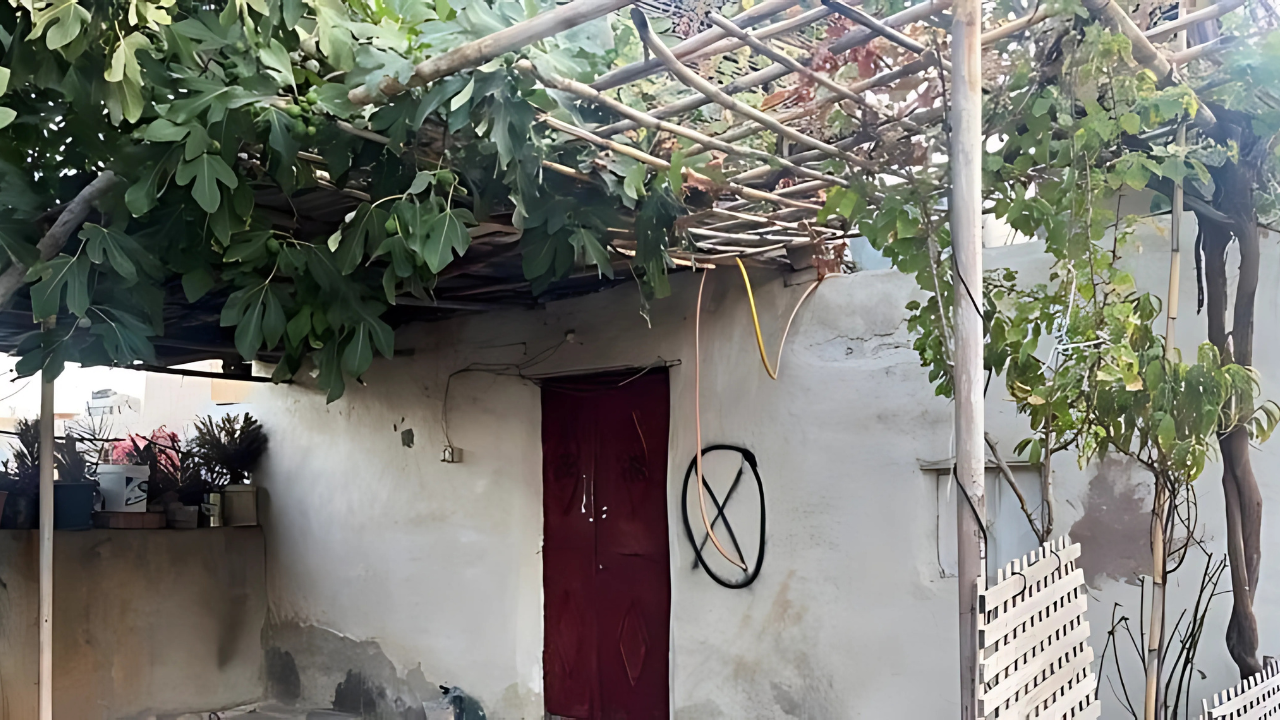
Post by : Shivana Rahim
In late August 2025, Syrian security forces launched a forceful operation in the Alawite suburb of Damascus known as Al-Somaria. Armed with guns, swords, and eviction notices, the forces stormed the neighborhood, marking homes with bold black symbols—X or O—to signal who could remain and who must leave. This highly tense and controversial move centered around eviction orders, property rights issues, and sectarian tensions deeply rooted in Syria’s complex history under the Assad regime.
Al-Somaria is a rundown suburb largely inhabited by families of former soldiers loyal to Bashar al-Assad, who belongs to the Alawite minority. For over five decades, the Assad family ruled Syria with a grip that favored Alawites—granting them property and key political positions while suppressing dissent, mainly from the majority Sunni Muslim population. This legacy created intense sectarian divides, and neighborhoods like Al-Somaria became strongholds for Assad loyalists. The suburb itself was originally seized and renamed by Rifa al-Assad in the 1970s, reshaping the area into an Alawite buffer zone that secured Assad’s power base.
From August 27 to 29, dozens of security personnel, under command figures such as Abu Hudhayfah, went door to door. They demanded residents prove land ownership amidst claims that many were illegally occupying property seized during the Assad era. Those without acceptable documentation found their homes marked with an “O” and faced eviction orders demanding they vacate within 48 hours or face legal consequences. Others received an “X,” which meant they could remain, but the markings and accompanying disruption caused widespread panic.
This operation has highlighted the property dispute conflicts that have long plagued Syria. Many residents felt unfairly targeted, with some providing ownership papers dismissed as invalid because they originated from now-outdated Assad-era records. The presence of both marks on some homes and eviction notices affixed even to “X”-marked properties added to the confusion and fear.
Before the eviction raids, around 22,000 people lived in Al-Somaria, nearly half of whom were former soldiers. Within a week of the operation, only about 3,000 residents remained as many fled fearing violence similar to what had earlier hit other Alawite coastal areas. Reports also emerged of men being interrogated about military service and others detained and beaten in a police-station-turned-residential building. One local committee member, Barak, who is a lawyer, described experiencing physical abuse firsthand.
Human rights experts have sharply criticized the evictions, labeling them forced displacements and severe human rights violations. These actions scatter communities, leave families homeless, and exacerbate sectarian tensions precisely when Syria is struggling with governance and security after Assad’s fall in December 2024.
The current administration, which rose following Assad’s ouster, faces the enormous challenge of addressing deep-rooted problems tied to property ownership, expropriation, and sectarian favoritism inherited from the old regime. Governor Maher Marwan acknowledged lingering injustices and promised legal committees to examine decades of informal housing and corruption, although no concrete transparent measures were reported.
Al-Somaria is now essentially a symbol of the broader conflict spanning Syria’s transition—between calls to restore justice for displaced populations and pressures from former loyalists who benefited from Assad’s policies. This dynamic complicates urban redevelopment plans, including major projects like a $2 billion metro line in Damascus slated to pass through Al-Somaria.
Experts and civil society organizations argue any solution must balance infrastructural development with respect for human rights and community integrity. Forced evictions conducted without due process risk entrenching grievances and jeopardizing reconciliation efforts. The new government must navigate rebuilding surface-level stability while addressing the sectarian roots of land conflict in Alawite and other communities.
Al-Somaria’s recent upheaval serves as a stark example of how property disputes, governmental authority, and sectarian identity intertwine in post-conflict Syria, influencing the future social and political landscape.
This detailed analysis offers a human-centered understanding of how Syrian forces’ evacuation of an Alawite suburb represents larger challenges of justice, displacement, and reconstruction in Syria’s fraught transition period.










Kazakhstan Boosts Oil Supply as US Winter Storm Disrupts Production
Oil prices inch down as Kazakhstan's oilfield ramps up production, countered by severe disruptions f

Return of Officer's Remains in Gaza May Open Rafah Crossing
Israel confirms Ran Gvili's remains identification, paving the way for the Rafah border crossing's p

Border 2 Achieves ₹250 Crore Globally in Just 4 Days: Sunny Deol Shines
Sunny Deol's Border 2 crosses ₹250 crore in 4 days, marking a significant breakthrough in global box

Delay in Jana Nayagan Release as Madras HC Bars Censorship Clearance
The Madras High Court halts the approval of Jana Nayagan's censor certificate, postponing its releas

Tragedy Strikes as MV Trisha Kerstin 3 Accident Leaves 316 Rescued
The MV Trisha Kerstin 3 met an unfortunate fate near Jolo, with 316 passengers rescued. The governme

Aryna Sabalenka Advances to Semi-Finals, Targeting Another Grand Slam Title
Top seed Aryna Sabalenka triumphed over Jovic and now faces Gauff or Svitolina in the semi-finals as